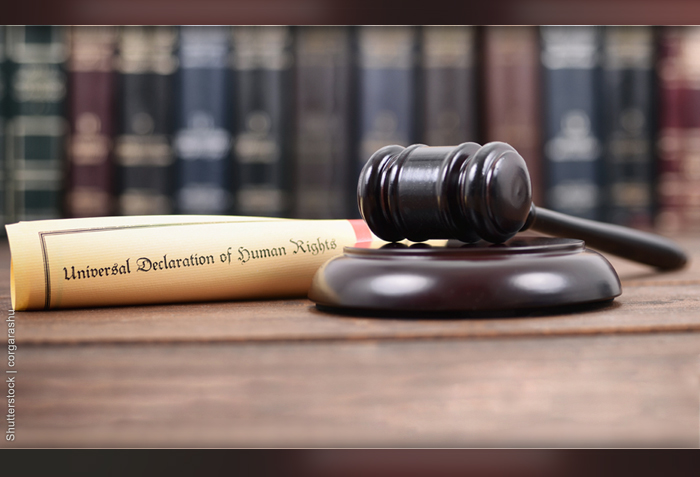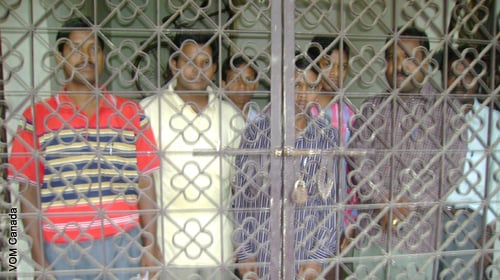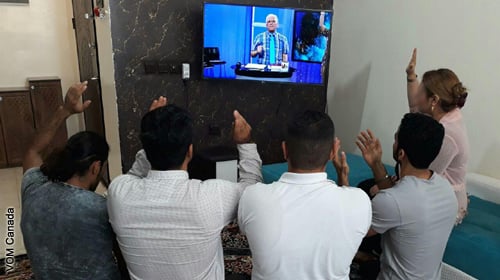
Freedom of Religion or Belief
“Everyone has the right to freedom of thought, conscience and religion;
this right includes freedom to change [their] religion or belief, and freedom
(either alone or in community with others…in public or private) to manifest
[their] religion or belief in teaching, practice, worship and observance.”
~ Universal Declaration of Human Rights (Article 18)
As a Christian, I uphold the Biblical basis for human rights, which acknowledges that all people are created in God’s image, and thereby worthy of dignity and respect – regardless of their religion or belief. Consequently, I agree with Article 18 of the Universal Declaration of Human Rights. However, while the intentions of this statement are admirable (since persecution because of one’s faith or belief is wrong), there is an essential element missing in the “freedom of religion or belief” (FORB) discussions held by the various political, religious and special interest groups that champion it.
As the Chief Executive Officer for The Voice of the Martyrs Canada, I have engaged personally with persecuted Christians worldwide. In sifting through the complicating factors that intersect religious persecution, I have observed three leading causes of Christian persecution.
- Christians are persecuted because of their religious identity.
The religious practices of those who follow Christianity uniquely differ from the traditional customs adhered to by the majority of people within their communities, often leading to cultural separation – a root cause of persecution. In many countries, the basis of one’s religious identity depends largely on the faith traditions with which they were raised. Therefore, an individual who happens to be born into a Christian family – whether nominal or devoted – is recognized as a “Christian” within their cultural constructs. These believers are usually citizens who desire to live peacefully within their communities, raise their children in the ways of the Lord, obtain meaningful work to provide for their loved ones, and engage in activities that enhance their communities while remaining free to practise their religious beliefs and customs. However, the reality is that, as a minority people, Christians encounter discrimination and are often deprived of the advantages and opportunities enjoyed by those of the majority. This sobering fact applies to both nominal and practising Christians.

Example: In Pakistan, all followers of Christ face difficulties, such as discrimination and numerous other forms of persecution, due to their Christian identity. Several large-scale violent attacks have occurred in Christian colonies, including those that took place during Christmas 2017 and Easter 2018. Additionally, Christians are generally trapped in a cycle of poor education and poverty. Many are employed as indentured slaves in brick kilns or tree nurseries; or they are forced to do other forms of menial labour as street sweepers or sewage workers.
Due to the country’s infamous blasphemy laws, many false charges have occurred. As a result, believers have been imprisoned for lengthy periods of time; others were required to cycle in and out of prison. Additional acts of injustice have been reported by the media over the years, including the upsetting news of Christian girls being abducted and forcefully married to much older non-Christian men. This is not only a terrible heartbreak for these innocent girls, but also for their distraught families.
- Christians are persecuted because of their faithful witness.
A vital aspect of the Christian life is sharing the Gospel with family, friends, neighbours and community members, in fulfillment of Jesus’ Great Commission (Matthew 28:16-20). As evangelism is an essential component of the Christian faith, it is best accomplished in the spirit of the Great Commandments: “…love the Lord your God with all your heart and with all your soul and with all your mind…. You shall love your neighbour as yourself…” (Mark 12:30-31 ESV). Evangelism is a means of sharing the Gospel (both publicly and privately), so others will hear the “Good News” of Jesus Christ and learn of His sacrificial love for them.
A sizeable portion of Christian persecution takes place directly because of notable church growth. In other words, the more a church is actively preaching the Gospel, the more it grows and faces resulting opposition.

Example: The Voice of the Martyrs’ Global Prayer Guide reports: "About 80 percent of Indians are Hindus, and more than 10 percent are Muslims. India is also the birthplace of Buddhism. The Indian government does not release accurate statistics about its Christian population, so exact figures are not available. While there are an estimated 30 to 70 million Christians in India, this is no more than a five percent minority among India’s staggering population of nearly 1.4 billion people.”- Although these believers are granted the right to openly practise their faith, they remain vulnerable to violent attacks and other forms of persecution. Churches have been demolished and burned, worship gatherings disrupted, crosses in graveyards vandalized, Bibles and other Christian literature confiscated and destroyed, and pastors physically assaulted and imprisoned for compassionately serving the members of their communities. Additionally, vague policies were passed in several Indian states, such as anti-conversion laws opposing the conversion of Hindus to other religions, causing further legal implications for Christians. Consequently, many have been arrested and held in custody for up to three weeks after being falsely accused of forcing Hindus to convert to Christianity. While the state anti-conversion laws have long been used against pastors, church planters and evangelists, the recent push for a similar federal law is gaining support.
- Converts to Christianity are persecuted for changing their religion.
The outcomes of evangelism, whether through individual interactions or the deployment of technology, such as satellite TV and the Internet, have resulted in tremendous church growth throughout many non-Western nations. More compelling, however, is the distinct move of God to build His church, without human intervention, through supernaturally imparted dreams and visions. This phenomenon occurs primarily in, but is not restricted to, the Muslim world.
Regardless of how a convert comes to Christ, upon the discovery of their conversion, they immediately experience a backlash of persecution and significant human rights abuses. Sadly, many of these abuses are perpetrated by close family members, so-called friends, and/or neighbours. The resulting persecution involves exclusion and social isolation; forcible detainment with accompanying torture; and grievously, in many cases, even honour killings. In addition, anti-conversion bills and blasphemy laws are commonly used as a means of discouraging conversions to Christianity and for applying pressure on Christian converts to return to their former religion. Due to the anti-conversion laws, followers of Christ are at risk of lengthy prison sentences and execution.

Example: The strict regime of the Iranian government is among the most oppressive in the world. As it is illegal to leave Islam, those who do will inevitably face the constant threat of imprisonment and potential false charges for allegedly “acting against national security.” Christian converts are routinely fired from their jobs, and it is difficult for a known believer to find a new means of employment. Christian families also risk being evicted from rented homes. And though several Christians are currently imprisoned, many others remain under house arrest while awaiting sentencing. Since Bibles are highly restricted in Iran, it is illegal to import them or print copies within the country.
The examples presented in this blog message only scratch the surface of the critical issues facing many of today’s Christians in various parts the world. Such difficulties are most common in Communist/post-Communist nations, totalitarian/security states, and regions ruled by religious nationalists or Islamic extremists. And while many religious freedom groups clearly recognize these concerning trends, and agree that persecution against Christians because of their faith is unjust and inhumane, more needs to be done to adequately address the abuses followers of Jesus endure due to the manifestation of their beliefs or conversions.
For FORB’s Article 18 to effectively achieve any meaningful results, and thus have a greater impact globally, the conversation now needs to move towards the establishment of one’s rights and freedoms, by permitting an individual to change their religion or belief, and thus manifest their core values through teaching, practice, worship and observance. This will require leaders of the FORB movement to continue having tangible and honest discussions on this important topic.
Whether the advancement of FORB succeeds or fails, the Bible teaches that Christians can expect opposition and persecution in this fallen world because of our conversion to Christ, identity as His followers, and faithful witness to others. Yet, God has given us His powerful Word, which teaches the theology of ‘suffering for righteousness,’ to help prepare and further equip us so we can victoriously persevere in trials. This Biblical understanding doesn’t mean that we stop advocating for other believers around the world who are suffering severe repression because of their faith. Rather, we are to recognize that true freedom is not granted by the governing state but ultimately by God Himself.
By holding steadfastly onto the Lord and His eternal promises, we are compelled to serve and glorify Christ among those who are hostile to His Gospel. Only then will we be empowered to live Godly lives in a world that is not our true eternal home.
For God’s glory and honour,
![]()
Floyd A. Brobbel
Chief Executive Officer
The Voice of the Martyrs Canada Inc.

